Time Management Techniques for Reducing Stress
Time management is a crucial aspect of modern life that directly impacts our mental well-being. Poor time management can lead to increased stress, while effective time management can enhance mental health and reduce anxiety.
The Connection Between Time Management and Stress Reduction
Poor time management often results in missed deadlines, unfinished tasks, and a sense of being overwhelmed. This can lead to elevated stress levels and anxiety. Studies have shown that individuals who manage their time effectively experience lower levels of stress and higher overall well-being. Effective time management allows individuals to allocate time for work, leisure, and rest, creating a balanced lifestyle that supports mental health.
A study conducted by the American Psychological Association found that individuals who practiced good time management reported lower stress levels and higher productivity. This demonstrates that managing time efficiently can significantly reduce anxiety and improve mental health.
Prioritization: Focusing on What Matters Most
Prioritization involves identifying and focusing on tasks that are most important. It is essential for effective time management and stress reduction. One useful technique for prioritization is the Eisenhower Matrix, which categorizes tasks into four quadrants based on their urgency and importance.
Urgent and Important: Tasks that require immediate attention.
Not Urgent but Important: Tasks that are important but can be scheduled for later.
Urgent but Not Important: Tasks that require attention but are not critical.
Not Urgent and Not Important: Tasks that can be eliminated or delegated.
By using the Eisenhower Matrix, individuals can focus on high-priority tasks and avoid getting bogged down by less important activities. For example, a busy professional might prioritize meeting deadlines for critical projects while scheduling time for personal development and exercise.
Utilizing Planning Tools for Better Organization
Planning tools, such as calendars, to-do lists, and apps, can significantly improve organization and time management. Digital tools like Google Calendar and Todoist offer flexibility and accessibility, while traditional tools like paper planners provide a tangible way to track tasks.
To set up a personal planning system, start by listing all tasks and deadlines. Next, categorize tasks by priority and allocate specific time slots for each activity. Regularly update and review your planning tools to ensure they remain effective.
Techniques to Avoid Procrastination
Procrastination is a common challenge that can hinder effective time management and increase stress. Common causes of procrastination include fear of failure, lack of motivation, and feeling overwhelmed.
Strategies to overcome procrastination include:
Pomodoro Technique:
Work for 25 minutes, then take a 5-minute break. Repeat this cycle to maintain focus and productivity.
Time Blocking: Allocate specific blocks of time for different tasks and stick to the schedule.
Setting Realistic Goals: Break down large tasks into smaller, manageable steps with clear deadlines.
Avoiding procrastination can lead to a sense of accomplishment and reduced stress, as tasks are completed on time.
The Role of Breaks and Downtime in Time Management
Taking breaks is essential for maintaining productivity and mental health. Short breaks during work hours can help recharge and maintain focus, while longer breaks and vacations provide necessary rest and rejuvenation.
Recommended types and frequency of breaks include:
Short Breaks:
5-10 minutes every hour to stretch and relax.
Longer Breaks: 30-60 minutes for meals and exercise.
Vacations: Extended time off to disconnect from work and recharge.
Balancing Work and Personal Life
Maintaining a healthy work-life balance is crucial for overall well-being. Setting boundaries between work and personal time helps prevent burnout and allows for time to enjoy hobbies and family activities.
Strategies for balancing work and personal life include:
Setting Boundaries:
Define specific work hours and stick to them.
Time Management: Allocate time for work, leisure, and rest.
Prioritizing Self-Care: Engage in activities that promote physical and mental health.
Successful work-life balance practices can lead to increased job satisfaction and reduced stress.
Practical Examples and Success Stories
Case studies and anecdotes can provide valuable insights into how effective time management can improve mental health. For instance, Sarah, a marketing executive in New York, struggled with high stress due to poor time management. By implementing the Eisenhower Matrix and using digital planning tools, she was able to prioritize tasks and reduce her workload. As a result, Sarah experienced lower stress levels and improved productivity.
Another example is John, a software developer in Miami, who used the Pomodoro Technique to break his work into manageable intervals. This approach not only increased his productivity but also significantly reduced his stress levels, allowing him to enjoy his personal time more effectively.
Lessons learned from such experiences highlight the importance of prioritization, planning, and taking breaks to manage time effectively.
Local Resources and Support Systems
For those seeking additional support, various local resources are available in Miami, New York, and Texas. Workshops, counseling services, and community support groups can provide guidance on time management and stress reduction. Seeking professional help when needed is crucial for managing stress and improving mental health. Community support groups and online forums can also offer valuable advice and support.
Effective time management is essential for reducing stress and improving mental health. By prioritizing tasks, using planning tools, avoiding procrastination, taking breaks, and balancing work and personal life, individuals can enhance their overall well-being. Local resources and support systems can provide additional guidance and support for those seeking to improve their time management skills.
If you have any questions or need further assistance with time management and stress reduction techniques,
contact Vital Psych MD today, our team of professionals is here to support you in achieving a balanced and stress-free life.











